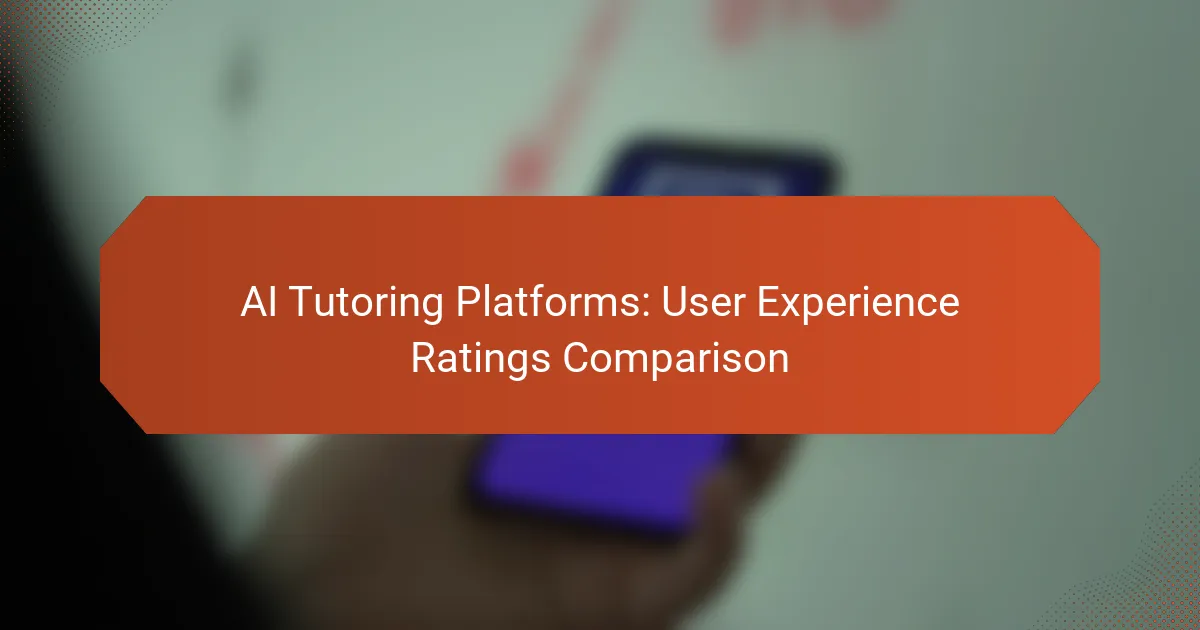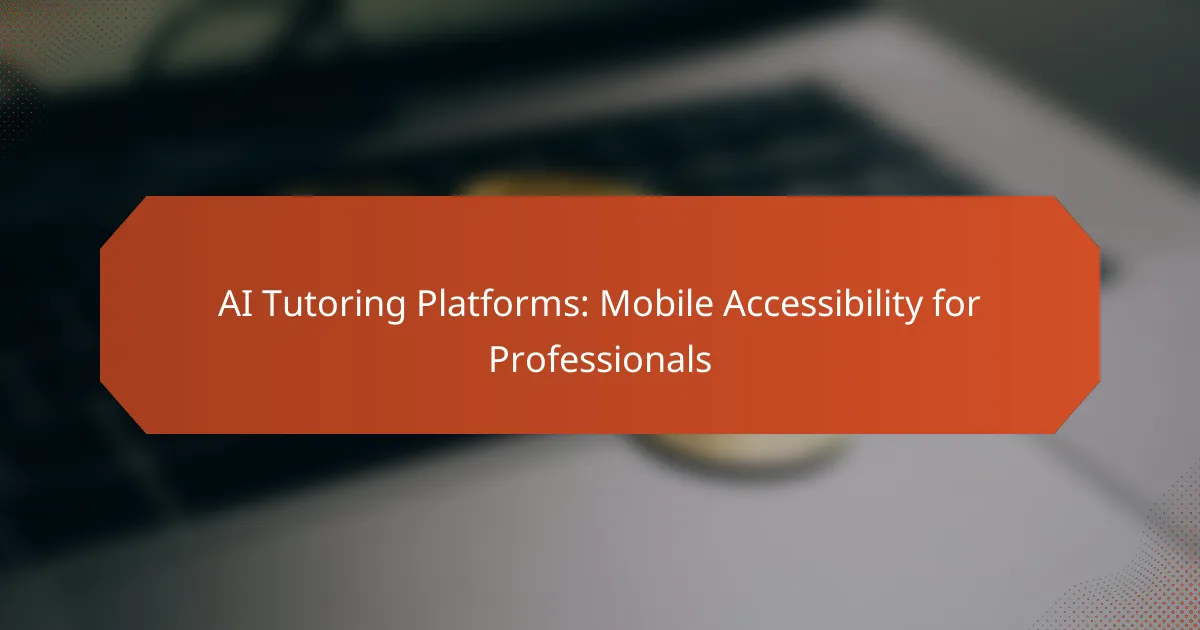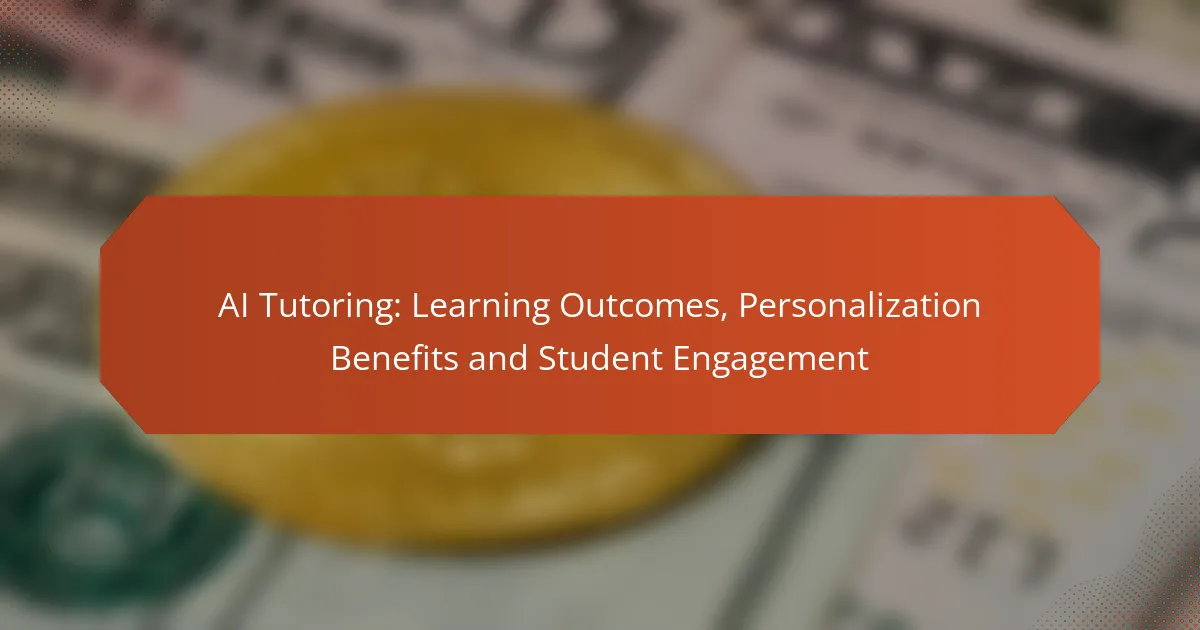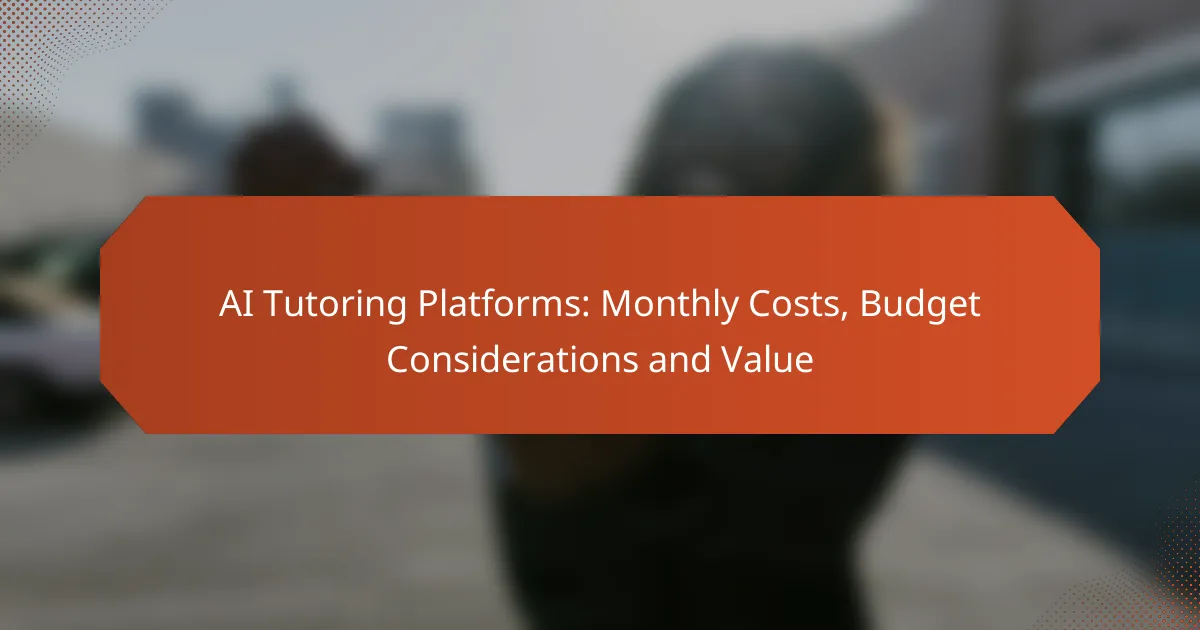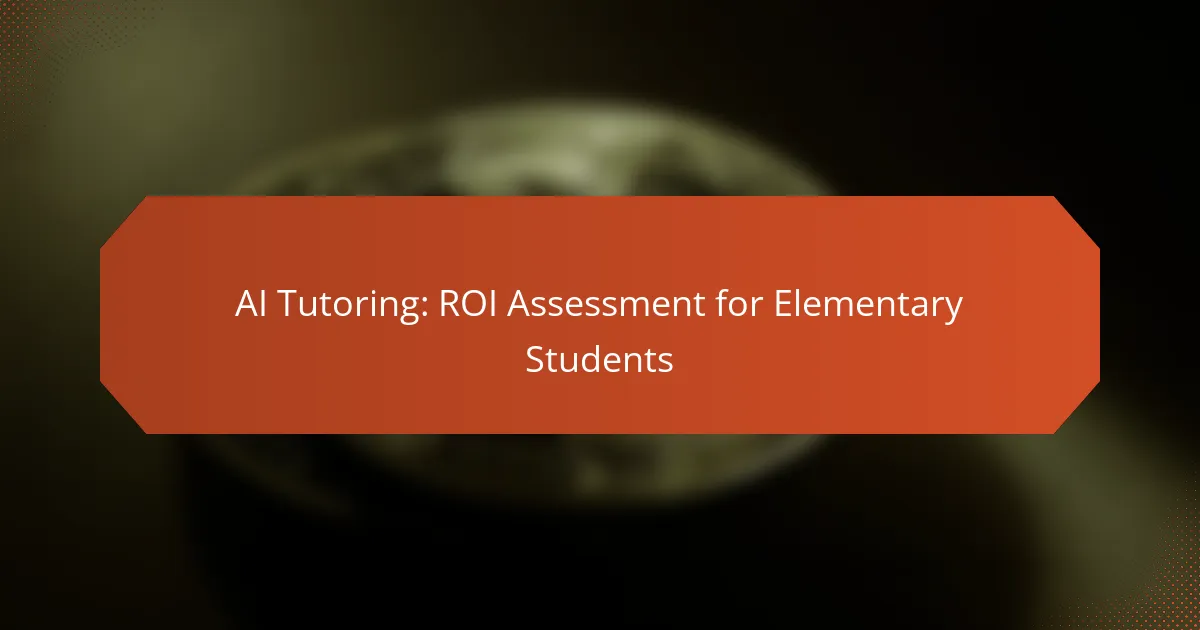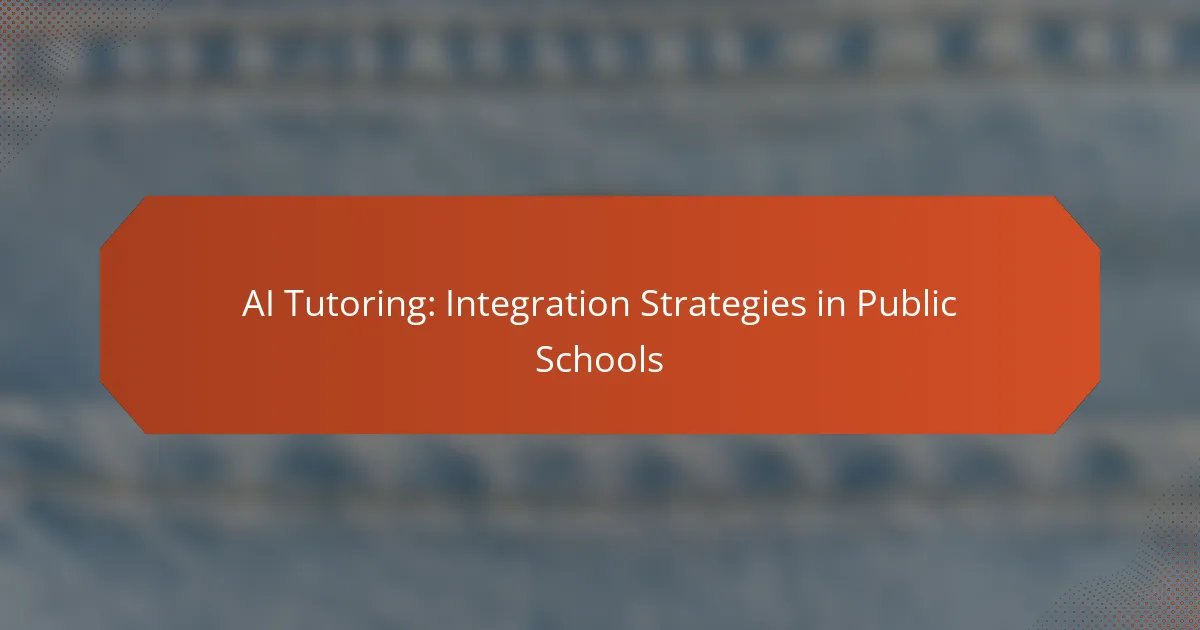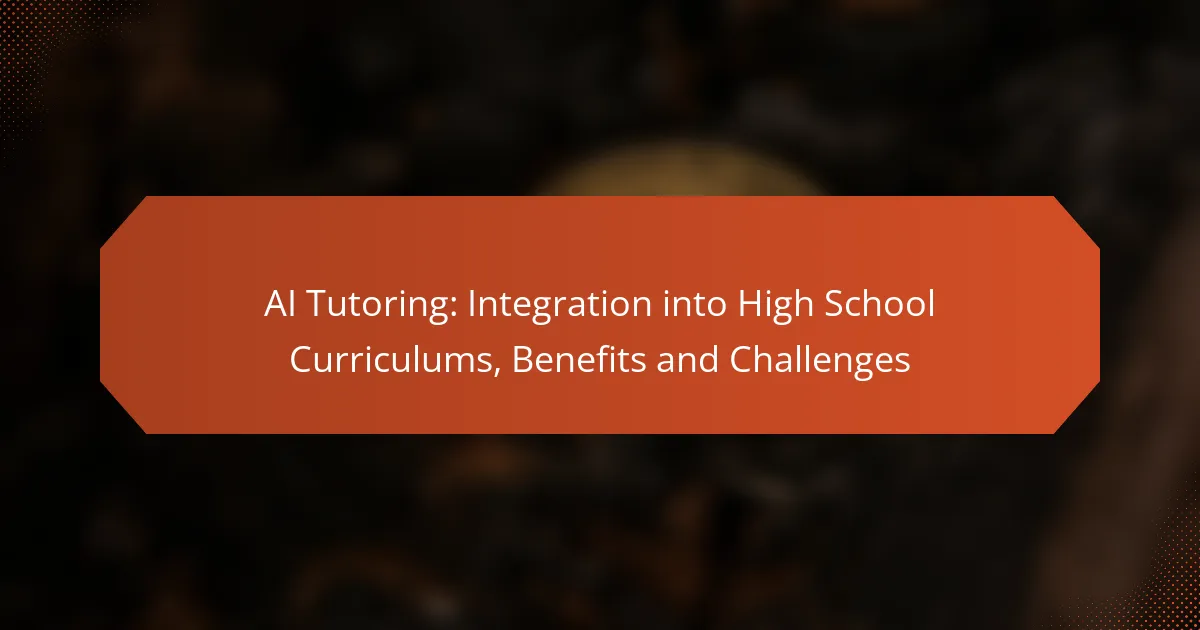AI tutoring is revolutionizing college education by offering personalized learning experiences that adapt to each student’s … AI Tutoring: Enhancements for Traditional Learning in CollegeRead more
AI tutoring and remote learning platforms are revolutionizing education by offering personalized and interactive experiences tailored to individual student needs. With options like Khan Academy, Coursera, and Chegg Tutors, learners can access unique features that enhance their educational journey. By leveraging advanced technology, these platforms provide efficient feedback and support, making learning more engaging and effective.
Parental Controls: Importance, Features and Effectiveness
Parental controls are essential tools designed to help parents manage their children’s online activities, ensuring a … Parental Controls: Importance, Features and EffectivenessRead more
AI Tutoring Platforms: User Experience Ratings Comparison
In the rapidly evolving landscape of AI tutoring platforms, user experience ratings serve as a crucial … AI Tutoring Platforms: User Experience Ratings ComparisonRead more
AI Tutoring Platforms: Mobile Accessibility for Professionals
AI tutoring platforms designed for mobile accessibility empower professionals to learn and teach anytime, anywhere. With … AI Tutoring Platforms: Mobile Accessibility for ProfessionalsRead more
AI Tutoring: Learning Outcomes, Personalization Benefits and Student Engagement
AI tutoring represents a transformative approach to education by enhancing learning outcomes through personalized experiences tailored … AI Tutoring: Learning Outcomes, Personalization Benefits and Student EngagementRead more
AI Tutoring Platforms: Monthly Costs, Budget Considerations and Value
AI tutoring platforms provide personalized educational support, enhancing the learning experience through tailored resources and performance … AI Tutoring Platforms: Monthly Costs, Budget Considerations and ValueRead more
AI Tutoring Platforms: Diversity in Learning Styles, Middle School and Engagement
AI tutoring platforms are revolutionizing education for middle school students by providing personalized and interactive learning … AI Tutoring Platforms: Diversity in Learning Styles, Middle School and EngagementRead more
AI Tutoring: ROI Assessment for Elementary Students
AI tutoring is revolutionizing education for elementary students by delivering personalized learning experiences that align with … AI Tutoring: ROI Assessment for Elementary StudentsRead more
AI Tutoring: Integration Strategies in Public Schools
AI tutoring solutions in public schools provide personalized learning experiences that significantly enhance student engagement and … AI Tutoring: Integration Strategies in Public SchoolsRead more
AI Tutoring: Integration into High School Curriculums, Benefits and Challenges
The integration of AI tutoring into high school curriculums presents a promising opportunity to enhance educational … AI Tutoring: Integration into High School Curriculums, Benefits and ChallengesRead more
What Are the Best AI Tutoring Platforms for Remote Learning?
The best AI tutoring platforms for remote learning offer personalized educational experiences, leveraging technology to adapt to individual student needs. Key options include Khan Academy, Coursera, Chegg Tutors, Wyzant, and VIPKid, each providing unique features and benefits.
Khan Academy
Khan Academy is a free online resource that provides a wide range of subjects, from math to science to humanities. Its AI-driven system tailors learning paths based on student performance, allowing for a personalized experience.
Students can track their progress through interactive exercises and instructional videos. The platform is particularly beneficial for self-paced learning, making it suitable for learners of all ages.
Coursera
Coursera partners with universities and organizations to offer courses across various fields, including technology and business. Many courses are free to audit, while a fee is required for certification.
The platform utilizes AI to recommend courses based on user interests and previous learning, enhancing the educational journey. Coursera is ideal for those seeking structured learning from reputable institutions.
Chegg Tutors
Chegg Tutors connects students with live tutors for one-on-one sessions in various subjects. The platform offers flexible scheduling, allowing students to get help when they need it most.
With a focus on personalized assistance, Chegg Tutors can be particularly useful for homework help or exam preparation. Users should consider subscription costs, which can vary based on usage.
Wyzant
Wyzant is a tutoring marketplace that allows students to find and hire tutors for in-person or online sessions. The platform features profiles with reviews and ratings, helping users choose the right tutor for their needs.
Wyzant's pricing is set by individual tutors, which can lead to a wide range of costs. This flexibility allows students to find tutors that fit their budget and learning style.
VIPKid
VIPKid specializes in teaching English to children in China through one-on-one online classes with native English speakers. The platform emphasizes a fun and engaging learning environment, using a structured curriculum.
Teachers can set their own schedules, making it a flexible option for educators. VIPKid requires a bachelor's degree and teaching experience, ensuring quality instruction for students.
How Do AI Tutoring Platforms Enhance Learning?
AI tutoring platforms enhance learning by providing personalized, efficient, and interactive educational experiences. They leverage advanced algorithms to tailor content and feedback to individual student needs, making learning more effective and engaging.
Personalized Learning Paths
Personalized learning paths allow students to progress at their own pace, focusing on areas where they need the most improvement. AI systems analyze student performance and preferences to create customized curricula that adapt over time. This approach ensures that learners are neither bored with material that is too easy nor overwhelmed by content that is too challenging.
For example, a student struggling with algebra might receive additional practice problems and resources specifically targeting that topic, while another excelling in the same area could move on to more advanced concepts. This tailored experience can significantly enhance retention and understanding.
Real-Time Feedback
Real-time feedback is a crucial feature of AI tutoring platforms, providing immediate insights into student performance. This instant response helps learners identify mistakes and correct them on the spot, reinforcing concepts and improving mastery. Unlike traditional methods, where feedback may take days, AI platforms can deliver results within seconds.
For instance, if a student answers a question incorrectly, the platform can instantly provide hints or explanations to guide them toward the correct answer. This immediate interaction fosters a more dynamic learning environment and encourages continuous engagement.
Adaptive Learning Technologies
Adaptive learning technologies adjust the difficulty and type of content based on ongoing assessments of student performance. These systems utilize machine learning algorithms to analyze data and modify the learning experience in real-time. This ensures that students are consistently challenged at an appropriate level.
For example, if a student demonstrates proficiency in a subject, the platform may introduce more complex problems or advanced topics. Conversely, if a student struggles, it can offer additional support and resources tailored to their specific needs. This adaptability helps maintain motivation and ensures that learning remains effective and relevant.
What Are the Key Features to Look for in AI Tutoring Platforms?
When selecting AI tutoring platforms, focus on features that enhance the learning experience, such as interactive content, progress tracking, access to qualified tutors, and mobile accessibility. These elements ensure that learners receive personalized support and can engage effectively with the material.
Interactive Content
Interactive content is essential in AI tutoring platforms as it keeps learners engaged and facilitates active participation. Look for platforms that offer quizzes, simulations, and gamified learning experiences that adapt to individual learning styles. These features can significantly enhance retention and understanding of complex topics.
For example, platforms might include interactive exercises that provide instant feedback, allowing students to learn from their mistakes in real-time. This immediate response can help reinforce concepts and improve overall learning outcomes.
Progress Tracking
Progress tracking features allow students and educators to monitor learning advancements over time. Effective platforms should provide dashboards that display metrics such as completed lessons, quiz scores, and areas needing improvement. This transparency helps learners stay motivated and focused on their goals.
Consider platforms that offer customizable progress reports, which can be shared with parents or educators. This feature can foster accountability and encourage a collaborative approach to learning.
Qualified Tutors
Access to qualified tutors is a critical feature of AI tutoring platforms. Look for services that vet their tutors based on credentials, experience, and teaching effectiveness. This ensures that students receive high-quality support tailored to their specific needs.
Some platforms may offer live tutoring sessions or the option to ask questions directly to tutors, providing an additional layer of personalized assistance. This can be particularly beneficial for students who need clarification on challenging subjects.
Mobile Accessibility
Mobile accessibility is vital for modern learners who often use smartphones or tablets for studying. Choose platforms that provide a seamless mobile experience, allowing users to access lessons and resources anytime, anywhere. This flexibility can significantly enhance learning opportunities.
Ensure that the mobile version of the platform retains all essential features, such as interactive content and progress tracking. A well-designed mobile interface can make it easier for students to engage with their studies during commutes or breaks, maximizing their learning time.
How Do Pricing Models Work for AI Tutoring Services?
Pricing models for AI tutoring services typically include subscription plans, pay-per-session options, and free trials. Understanding these models helps users choose the most cost-effective and suitable option for their learning needs.
Subscription Plans
Subscription plans are a common pricing model where users pay a recurring fee, usually monthly or annually, for access to tutoring services. These plans often provide unlimited sessions or a set number of sessions per month, making them ideal for students who require regular assistance.
Prices for subscription plans can vary widely, generally ranging from around $20 to $100 per month, depending on the platform and the level of service offered. Some platforms may offer tiered plans with additional features, such as personalized learning paths or access to premium content.
Pay-Per-Session
Pay-per-session models charge users a fee for each tutoring session they attend. This approach is beneficial for students who need occasional help or prefer not to commit to a subscription. Rates can vary significantly, often between $10 and $50 per session, depending on the tutor's expertise and the platform's reputation.
When considering pay-per-session options, it's important to factor in the potential costs of multiple sessions if ongoing assistance is needed. Users should also check if there are any additional fees for materials or resources.
Free Trials
Many AI tutoring platforms offer free trials, allowing users to test the service before committing financially. These trials typically last from a few days to a couple of weeks and may include a limited number of sessions or access to specific features.
Taking advantage of free trials can help users assess the quality of tutoring and the platform's suitability for their learning style. However, it's crucial to read the terms carefully, as some trials may automatically convert to paid subscriptions if not canceled in time.
What Are the Benefits of Remote Learning with AI Tutors?
Remote learning with AI tutors offers personalized education experiences that adapt to individual learning styles and needs. This approach enhances engagement and effectiveness, making it a valuable alternative to traditional classroom settings.
Flexibility and Convenience
AI tutoring platforms provide unmatched flexibility, allowing students to learn at their own pace and schedule. This convenience means that learners can access materials and support anytime, whether early in the morning or late at night.
For example, a student can review complex topics during their free time or fit in study sessions around other commitments, such as work or family responsibilities. This adaptability is particularly beneficial for those balancing multiple priorities.
Cost-Effectiveness
Utilizing AI tutors can be more cost-effective than traditional tutoring or classroom education. Many platforms offer subscription models or pay-per-session options, often resulting in lower overall costs compared to in-person tutoring.
For instance, while in-person tutors may charge hourly rates that can reach into the hundreds of dollars per month, AI tutoring services often provide access for a fraction of that cost, making quality education more accessible.
Access to Global Expertise
AI tutoring platforms connect learners with a diverse range of experts from around the world. This access means students can benefit from various teaching styles and perspectives, enriching their learning experience.
For example, a student in Europe can receive assistance from a specialist in the United States, gaining insights that may not be available locally. This global reach enhances the educational resources available, allowing for a more comprehensive understanding of subjects.
What Are the Challenges of Using AI Tutoring Platforms?
AI tutoring platforms face several challenges that can impact their effectiveness. Key issues include limited personalization, the potential for inaccurate feedback, and varying levels of user engagement.
Limited Personalization
Many AI tutoring platforms struggle to provide truly personalized learning experiences. While they can adapt to some extent based on user performance, they often lack the nuanced understanding of individual learning styles and needs that a human tutor can offer.
To address this, look for platforms that utilize advanced algorithms and machine learning to analyze user data more deeply. This can help create a more tailored educational experience, but it may still fall short compared to traditional tutoring methods.
Inaccurate Feedback
AI systems can sometimes provide feedback that is not entirely accurate, leading to misunderstandings or incorrect learning paths. This can occur due to limitations in the AI's training data or its inability to interpret complex student responses.
When using AI tutoring platforms, it's essential to cross-check feedback with reliable sources or consult a human tutor for clarification. This helps ensure that students receive correct information and guidance.
Varying Levels of User Engagement
User engagement can fluctuate significantly on AI tutoring platforms, affecting learning outcomes. Some students may find the technology engaging, while others may feel disconnected from the learning process.
To enhance engagement, choose platforms that incorporate interactive elements, such as gamification or real-time feedback. Additionally, setting clear goals and encouraging regular use can help maintain motivation and commitment to learning.


